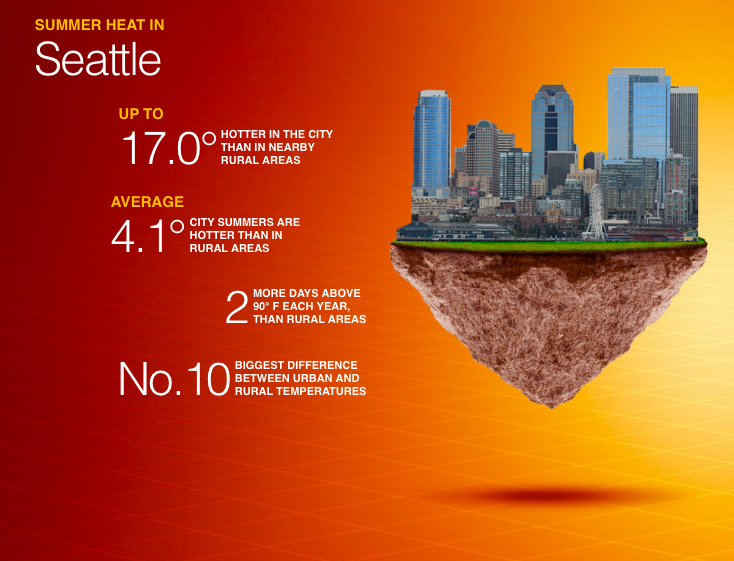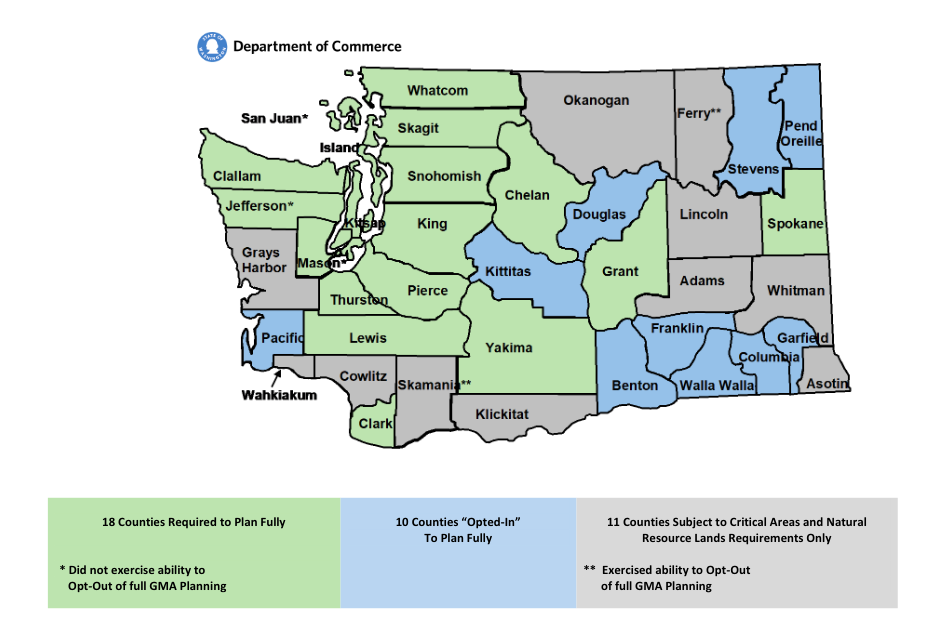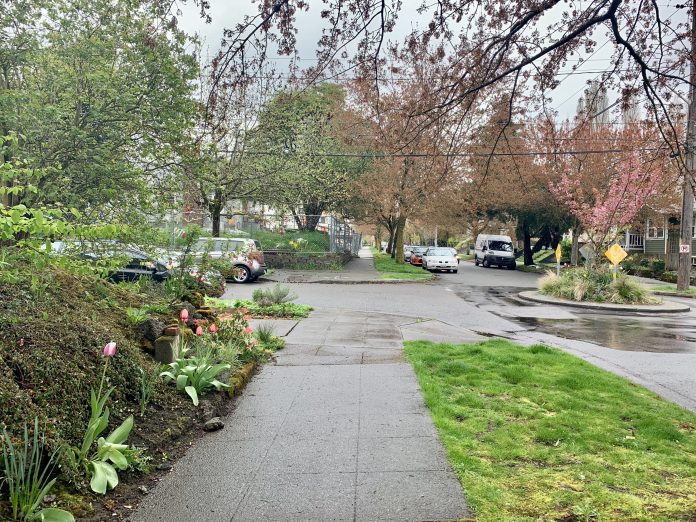Seattle may be famous for its cool rainy weather, but it is a little known fact that the city also holds the dubious distinction of ranking as one of the most intense urban heat islands in the United States. A study completed by Climate Central found that over a ten year period the average temperature in Seattle was significantly hotter than in nearby rural areas, landing Seattle at tenth in its national rankings of urban heat islands.

As global warming increases, urban heat island effects will continue to worsen, harming human health, energy systems, urban ecosystems, and infrastructure. A recent study published in Environmental Research Letters has projected that by 2050, over half of people living in cities could be threatened by extreme heat. While the worst consequences are expected to unfold across the Global South, cities like Seattle are vulnerable to impacts of a warming planet as well.
A hotter and more uncertain future was likely on the minds of Washington State Representatives as they recently passed House Bill 2427, a bill which adds tackling climate change as a goal of the state’s Growth Management Act (GMA). In addition to support the GMA’s existing planning goals, such as reducing urban sprawl and encouraging multimodal transportation systems, under HB 2427 counties and cities would also need to develop and implement comprehensive plans that help to:
- achieve state greenhouse gas emission reduction limits;
- adapt to the effects of a changing climate;
- build resilient infrastructure;
- protect people and property from natural hazards exacerbated by the changing climate.
The bill also contains direct references to the problem of urban heat island impacts in Washington and requires that cities with more than 100,000 residents document how existing urban heat islands are affecting urban ecology and the health of salmon populations.

These cities would also be directed to assess how projected population growth through 2050 could heighten the intensity of damage to human health and ecology from urban heat islands. The bill also promotes creating best and worst case scenarios to illustrate how the future could play out if cities undertake all urban heat island mitigation best practices or pursue no policy solutions at all.

HB 2427 is currently sitting in committee in the State Senate, where it is expected to be voted on before end of the current legislation in mid-March, alongside other climate legislation passed by the House, including HB 2311, which strengthens the state’s greenhouse gas reduction targets. Even with a Democratic majority in the Senate, it is not assured that these bills will pass, and HB 2427 faces the added challenge of controversy from some rural districts that have claimed for years that the GMA hurts rural economies by preventing growth outside of metro areas.
Scientific evidence increasingly backs up the importance of urban planning both as a tool for curbing carbon emissions and as means for mitigating some the climate crisis’s consequences. Futurewise–a nonprofit founded to implement and defend the GMA which contributes a monthly update in The Urbanist–is advocating for the passage of HB 2427 and encouraging people to contact their State Senators to voice their support for the bill. You can use the link here to reach out to your senator today.
Natalie Bicknell Argerious (she/her) is a reporter and podcast host at The Urbanist. She previously served as managing editor. A passionate urban explorer since childhood, she loves learning how to make cities more inclusive, vibrant, and environmentally resilient. You can often find her wandering around Seattle's Central District and Capitol Hill with her dogs and cat. Email her at natalie [at] theurbanist [dot] org.


